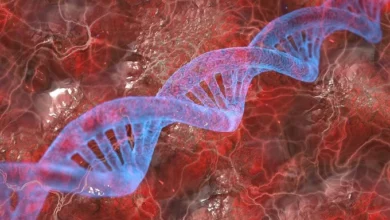These foods rich in antioxidants increase the risk of cancer

Antioxidant-rich foods such as black tea, chocolate, nuts, and red fruits may increase the risk of certain cancers, a team of Israeli researchers has discovered.
To limit ageing due to free radicals, it is advisable to eat a diet rich in antioxidants. However, antioxidants can increase the risk of certain cancers, according to scientists at the Lautenberg Center for Immunology and Cancer Research at the Hebrew University of Jerusalem.
“Careful analysis has identified the culprit that caused the rapid spread of cancer in the colon: the intestinal flora that produces metabolites called ‘antioxidants’ found in high concentrations in foods such as black tea, chocolate, nuts, and red fruits,” they announce in a press release issued by the University.
Focusing on the role of intestinal microflora in gastrointestinal cancer, the group seems to have found the reason why only 2% of tumors develop in the small intestine. In comparison, 98% affect the large intestine.
The reason, according to the scientists, lies in the main difference between these organs – the presence of intestinal microflora. The small intestine contains few bacteria, while a rich microflora inhabits the large intestine.
“Scientists are starting to take more and more interest in the role of the intestinal microflora in our health: both its positive effect and, in this case, its sometimes harmful role in provoking certain diseases,” explained the team leader.
A protein behind the development of cancer
According to the researchers, a key role in the development of cancer is played by a protein called p53, which acts as a cell barrier, suppressing genetic mutations in the cell. When damaged, it not only stops protecting the cell but even stimulates the development of cancer, helping tumors to spread and grow.
The researchers injected mutated p53 proteins into the large intestine and the small intestine. In the latter, the proteins were converted to normal p53, suppressing the growth of cancer cells, while in the large intestine, they remained the same and caused cancer to spread.
At issue: the environment rich in microbes that exist in the large intestine. To further test the role of colon microflora, Israeli scientists removed it with antibiotics, and in this case, the mutated p53 no longer caused cancer.




